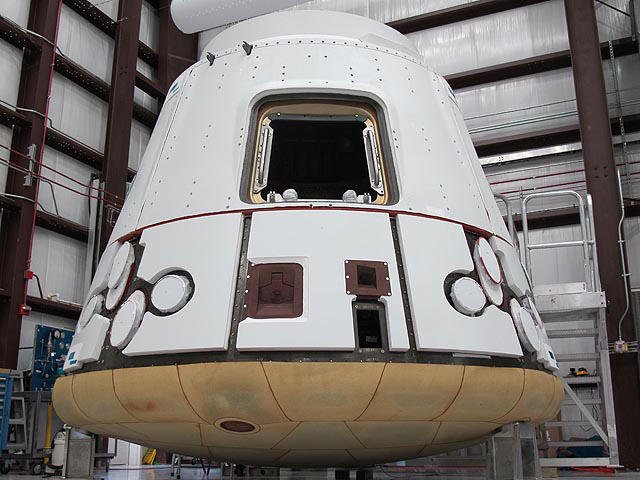Patience of Congress Wearing Thin for NASA's Private Space Taxi Plan

It's taking too long to develop commercial spaceships to deliver cargo and crews to the International Space Station, members of Congress told senior NASA officials Wednesday March 28).
NASA is working with private space companies to develop robotic vehicles capable of carrying food, supplies and scientific experiments to the orbiting laboratory. The agency is also trying to spur along spacecraft that can carry astronauts to the station, filling the gap left behind by the retirement of NASA's space shuttle fleet last year.
But in a televised hearing on Capitol Hill Wednesday, some Congress members expressed impatience that none of these spacecraft are quite ready yet.
"I hear excuses and delay after delay for the supposedly simple act of delivering cargo to the space station," said Rep. Ralph Hall (R-Texas), chairman of the House Committee on Science, Space and Technology. "NASA's spent $1.6 billion on this effort so far and the nation doesn't have very much to show for it."
NASA's associate administrator for Human Exploration and Operations, Bill Gerstenmaier, urged patience to the committee.
"Nothing in space is ever easy," Gerstenmaier said. "The teams have solid plans for the next year. We are working to bring commercial crew online as soon as possible."
And the commercial vehicles are making progress. The first of the unmanned cargo ferries, the Dragon capsule built by Hawthorne, Calif.-based company SpaceX, is due to launch to the space station for the first time April 30.
Get the Space.com Newsletter
Breaking space news, the latest updates on rocket launches, skywatching events and more!
And the other, Orbital Science Corp. of Dulles, Va.'s Cygnus spacecraft, could lift off as early as Sept. 1.
Some of the delays to these maiden launch dates are due to issues getting their launch facilities up and running.
"They've spent quite a bit of time developing their launch pads; their launch pads are now up and operational," Gerstenmaier said. SpaceX is "ready to go do the launch at the end of April," he added, while the Wallops, Va., launch site for Orbital still requires a bit more work.
The schedule for bringing private vehicles up and online has also been slowed by cuts to NASA's budget that have resulted in less money going toward its Commercial Orbital Transportation Services (COTS) and Commercial Crew Program. [NASA's 2013 Budget: What Will It Buy?]
"If we want to ensure the space station carries out the needed research and technology activities in timely and productive fashion, we have to be willing to make the needed investments," said Rep. Eddie Bernice Johnson (D-Texas). "Those continued cuts have had a negative impact on NASA's ability to carry out its missions that we should not ignore."
Hall asked if there were penalties for the commercial companies when they missed deadlines.
"For every slip that occurs beyond a one-month period, we get some benefit back to us," Gerstenmaier assured him, citing the example of SpaceX adding extra refrigerated storage capacity to its capsule as a consequence for a delay.
You can follow SPACE.com assistant managing editor Clara Moskowitz on Twitter @ClaraMoskowitz. Follow SPACE.com for the latest in space science and exploration news on Twitter @Spacedotcom and on Facebook.
Join our Space Forums to keep talking space on the latest missions, night sky and more! And if you have a news tip, correction or comment, let us know at: community@space.com.

Clara Moskowitz is a science and space writer who joined the Space.com team in 2008 and served as Assistant Managing Editor from 2011 to 2013. Clara has a bachelor's degree in astronomy and physics from Wesleyan University, and a graduate certificate in science writing from the University of California, Santa Cruz. She covers everything from astronomy to human spaceflight and once aced a NASTAR suborbital spaceflight training program for space missions. Clara is currently Associate Editor of Scientific American. To see her latest project is, follow Clara on Twitter.









